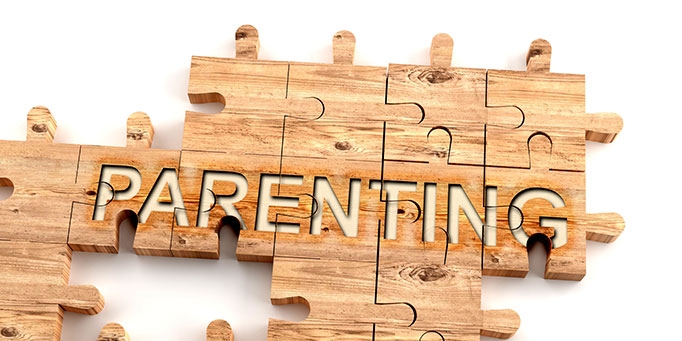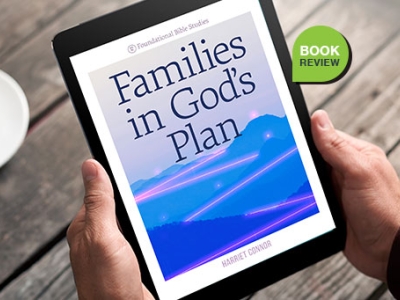
Why I don’t believe in (just) parenting
Raising children is about so much more!
I’ve been thinking and writing about family life for almost ten years now. As I’ve gradually developed a fuller understanding of God’s vision for families, there’s one word that I have, quite intentionally, dropped from my vocabulary. It’s the word ‘parenting’.
You see, the word ‘parenting’ is a modern invention and carries with it a number of very modern assumptions that I believe are generally unhelpful. God’s vision for parents and children is so much more than what we call ‘parenting’. (Of course, the word is still a useful shorthand, so you’ll find me using it occasionally!)
Let me tell you why I no longer believe in (just) ‘parenting’.
[This article is partly based on a conversation I had with God’s Story Podcast about my new Bible study booklet, Families in God’s Plan: 12 Foundational Bible Studies.]
It’s not just a verb
My main problem with the word ‘parenting’ is that it’s a verb, making it all about what we do. Parents in previous generations simply spoke about being mothers and fathers and I think that’s a more helpful way to look at things. You don’t have to do anything to become a parent—you already are one! That’s equally true whether you’re sitting in an armchair reading a book (alone!) or sitting on the floor playing with your children. We’re all full-time mums and full-time dads—and will be for the rest of our lives.
The most important thing is our relationship with our children. Everything else we might do (or not do!) needs to flow from that.
It’s not just present-tense
The other thing about the verb ‘parenting’ is that it’s always in the present tense. This puts the focus on what we’re doing right now, rather than on what we’re aiming for in the long term. Dealing with the things that seem urgent today—surviving our toddler’s tantrum; getting dinner cooked, served and eaten; stumbling over the ‘finish line’ of bedtime—can sometimes distract us from working towards longer-term goals.
I like the term ‘raising children’ because it inherently looks to the future: it begs the question, raising children into what? It forces us to think about what kind of adults we want our children to grow into, and work backwards from there.
Psalm 78 describes God’s long term vision for child-raising with these words:
‘… we will tell the next generation
the praiseworthy deeds of the Lord,
his power, and the wonders he has done.
He decreed statutes for Jacob
and established the law in Israel,
which he commanded our ancestors
to teach their children,
so the next generation would know them,
even the children yet to be born,
and they in turn would tell their children.
Then they would put their trust in God
and would not forget his deeds
but would keep his commands. (Psalm 78:4b–7)
It’s not just an abstract technique
When we use the word ‘parenting’ we’re usually thinking of a kind of abstract technique. We consume endless books, blogs and podcasts, hoping that a ‘parenting’ expert will tell us how to raise our children. We start thinking it’s a simple formula: if I do X then my child will do Y.
We can even start thinking that maybe an expert would be better at this whole ‘parenting’ thing than us, and so we send our children off for more day care or preschool or after-school activities.
But raising children is not an impersonal technique that anyone could apply to our children; it’s a dynamic relationship between us, their one and only parents, and our particular children, not the generic children from a textbook. No expert can replace getting to know your own children through observation and experience and fine-tuning your approach over time.
The other thing about seeing ‘parenting’ as a technique is that it implies we start with a blank slate. But nothing could be further from the truth! Every one of us has been profoundly shaped by how we were raised, by our relationship with our own particular parents, however imperfect. We’ve inherited certain traits and tendencies, beliefs and behaviours, hopes and habits that will inevitably affect how we interact with our own children. Changing or overcoming these takes a great deal of commitment, perseverance and forgiveness (from ourselves and others) when we get it wrong.
It’s not gender-neutral
Those who have studied the way that mothers and fathers interact with their children argue that really, there’s no such thing as ‘parenting’—there’s only ‘mothering’ and ‘fathering’. Biologically speaking, mothers and fathers are wired differently and have different kinds of relationships with their children. Mothers carry their children within their own bodies for nine months; after the children are born, mothers are uniquely equipped to feed and comfort them. By contrast, a father’s relationship with his children begins at a greater physical distance which he has to bridge with personal commitment.
Speaking generally, mothers tend to have a more nurturing approach that focuses on creating a close attachment with their children and sheltering them from the world; fathers tend to have a more challenging approach that focuses on fostering their children’s independence and preparing them for the world. (You can read more about this in the book Them Before Us, Chapter 3 or this summary.)
The word ‘parenting’ hides the fact that mothers and fathers generally relate to their children in different, but equally important ways.
It’s not just us
Finally, the word ‘parenting’ ignores the important role that other people will ideally play in helping our children reach maturity. What about ‘grandparenting’, ‘godparenting’, ‘uncling’ and ‘aunting’?! The liberating truth is that it’s not just up to us to help our children grow (although we bear the primary responsibility for it). There are many other adults who love them and, ideally, will be there to support us in this task. As Christians, we are blessed to have not just our extended family, but our church family standing beside us too. The older our children get, the more significant these non-parental figures will become.
So the next time you’re talking about your role as a parent remember:
• It’s not just about what you do
• It’s not just about the present
• It’s not just an abstract technique
• It’s not gender-neutral
• It’s not just us.
Being parents is something much more—it’s far more relational, long-term, dynamic, personal and supported than mere ‘parenting’. It’s a high calling, just like the one God gave to Abraham, the ‘father’ of Israel:
‘For I have chosen him, so that he will direct his children and his household after him to keep the way of the Lord by doing what is right and just, so that the Lord will bring about for Abraham what he has promised him.’ (Genesis 18:19)
If you’d like to explore more of God’s big vision for families, why not download my digital resource, Families in God’s Plan: 12 Foundational Bible Studies, and work through it by yourself, as a couple or with your Bible study group.
.
---
Harriet Connor is the Content Editor for Growing Faith and the author of Families in God's Plan: 12 Foundational Bible Studies and Big Picture Parents: Ancient Wisdom for Modern Life (Wipf and Stock, 2017). She lives on the Central Coast of NSW with her husband and four sons.

Families in God's Plan
From beginning to end, our lives are profoundly shaped by our family ties to those who came before us and to those who will come after us. The world around us offers loud and ever-changing opinions about what a family is and what it is for. But it is only by listening to God—who designed the human family in the first place—that we can build a strong and secure foundation for family life.
For more articles from Growing Faith, subscribe to our monthly e-newsletter.
To hear about the latest books and resources from Youthworks Media, subscribe here.








